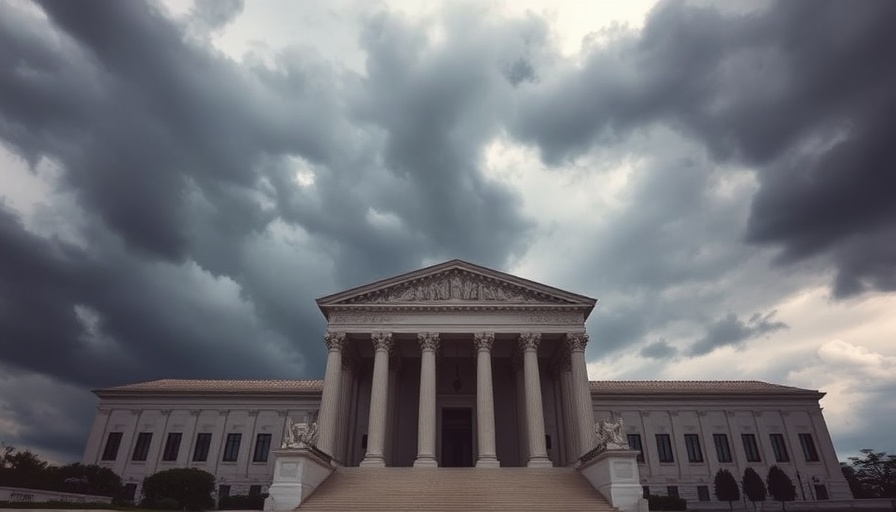
The Supreme Court's Shocking Decision on Grant Funding
The recent ruling by the Supreme Court, which allows the Trump administration to pause funding for specific National Institutes of Health (NIH) research grants, has reverberated throughout the scientific community and beyond. This unprecedented move raises critical questions about the future of biomedical research in the United States and the impacts on public health.
The decision signifies a monumental shift in federal funding management, turning the spotlight on how much autonomy government bodies will have over scientific funding. Experts are now eyeing congressional responses, fearing that without adequate financial support, many research projects, especially those addressing pressing health issues, may be put on hold.
Understanding the Implications of the Ruling
With the Supreme Court's ruling, institutions and researchers depending on NIH funding are left in a precarious position. This ruling could hinder various research initiatives looking to address crucial health concerns, from cancer studies to vaccine development.
As a result, scientists now face uncertainty in planning their projects, which can lead to a chilling effect on the willingness of researchers to innovate or pursue groundbreaking studies. The potential fallout could not only affect research outcomes but also impact public health strategies—especially at a time when new healthcare challenges continue to surface.
The Broader Consequences for Public Health
This ruling comes at a time when the importance of scientific research has been underscored by the COVID-19 pandemic. As researchers call for robust funding to tackle pressing health issues, governmental interference in funding decisions could prove detrimental.
In light of the Supreme Court’s decision, public health advocates emphasize the necessity for stable, unbiased funding to ensure continuity in scientific progress. Experts in the field argue that public health should not only be viewed through the lens of restrictions, but rather, as a valuable investment in the nation's health infrastructure.
Potential Future Trends in Research Funding
Looking ahead, the ruling is likely to stimulate a broader dialogue about the necessity and ethical implications of funding allocations. Funding pressures may switch from direct research advances to more politically favorable projects, which could define emerging trends in health research.
Observers suggest that this pivotal moment could incite advocacy efforts from the scientific community to establish more consistent funding mechanisms that safeguard against political fluctuations. This pattern may open avenues for alternative funding resources, perhaps increasing collaborations with private sectors or international organizations.
Counterarguments: Support for Funding Restrictions
Supporters of the funding halt argue that such measures prevent the misuse of taxpayer dollars and ensure that funding prioritizes projects aligned with governmental health agendas. They contend that government oversight can optimize expenditure efficiency and drive necessary changes in research focus.
However, this viewpoint clashes with the opinion of many in the scientific community, who argue that restricting funding largely compromises the integrity and independence of scientific research.
Call to Action: Engage With the Discussion
As this ruling develops, it is imperative for the public to engage with their representatives about the significance of funding for scientific research. Support for sustained funding programs could determine the health outcomes in the years to come.
It is crucial that citizens voice their concerns and advocate for policies that will enhance, rather than hinder, the pursuit of innovative scientific research. Understanding the implications of this ruling is the first step towards influencing future decisions that affect public health.
 Add Row
Add Row  Add
Add 




Write A Comment